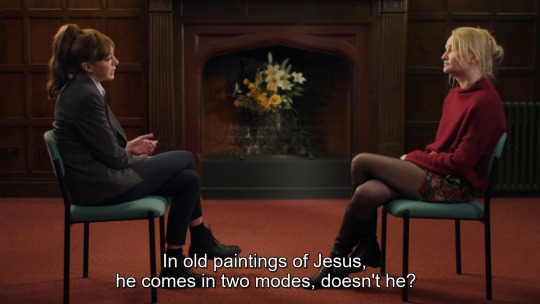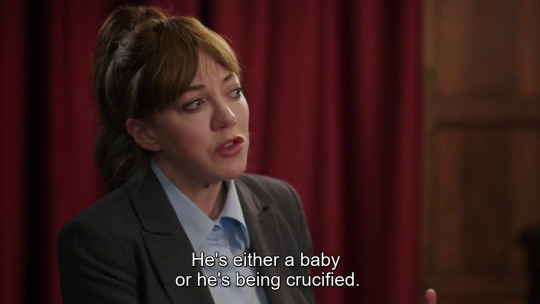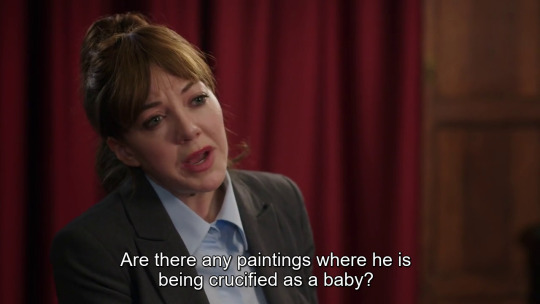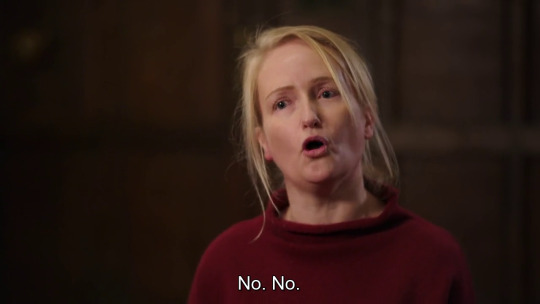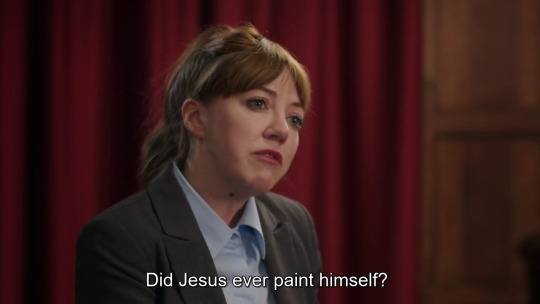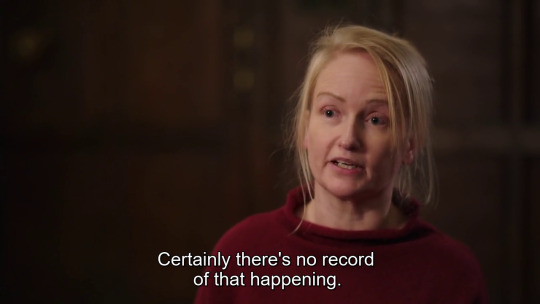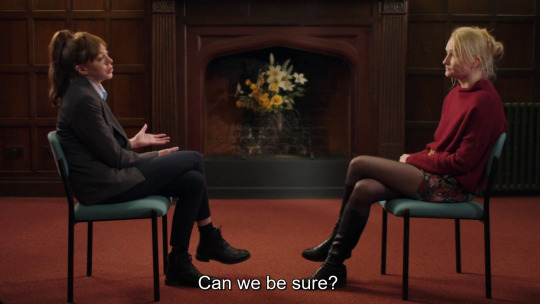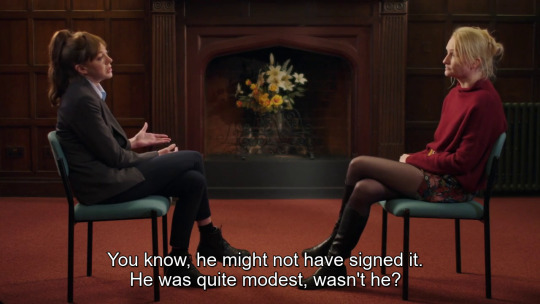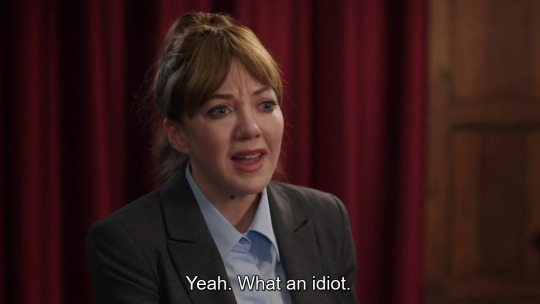Don't wanna be here? Send us removal request.
Text
I don't think fossil fuels are particularly problematic or slavery particularly wealth-generating
There’s an interesting analogy between slavery and fossil fuels where people discovered this incredibly convenient resource that could make them fabulously wealthy only to realise that its continued exploitation was problematic but since it was making them rich they shrugged and kept doing it till the bitter end.
280 notes
·
View notes
Text
wondering for no particular reason if there's any 4chumblr art out there where tumblr is the boy and 4chan is the girl
97 notes
·
View notes
Text
i hated that "all men think about is the Roman empire" meme bc like, literally all of the Latinists I know are women who talk about Roman senators like they're members of a boy band.
9K notes
·
View notes
Text
Anyone ever notice Garnet can be a little competitive . . . ?
That's one Gem who plays to win. . . .











GARNET WINS.
785 notes
·
View notes
Text
yeah I think the thing that's a "male interest" is specifically constantly having erroneous fantasies about the Roman Empire
i hated that "all men think about is the Roman empire" meme bc like, literally all of the Latinists I know are women who talk about Roman senators like they're members of a boy band.
9K notes
·
View notes
Text
I see your offer of a lifetime of loneliness to make myself and the world "purer" and raise you a How About We Do Something Else Instead.
social media has really warped our perception of creativity and hobbies. Stop doing things to post them. Just write. Just journal. Just sketch. Just read. Just annotate. Just sing. Just crochet. Just do the thing you’re going to do with the assumption no one will ever see or know you did it. Stop performing. Just enjoy it.
110K notes
·
View notes
Text
White leftist suddenly against cultural preservation after learning it also includes that culture's religion, many such cases
11K notes
·
View notes
Text
Even if this is a real thing [which I highly doubt, especially if "grains" are "vegetables" too], this is not a significant % of the population and would have basically zero impact on humanity's ability to stop doing animal farming, especially now that cultured meat exists.
Unironically, vegans need to be advocating for more and better sheep, llama, and alpaca farms. Wool is one of the best fabrics we have in terms of versatility, longevity and most importantly, insulation. Even wet, it retains 80% of it’s insulation potential.
AND IT DOESN’T SHED MICROPLASTICS
160K notes
·
View notes
Text
The issue of talking frankly about trans sexuality becomes very fucked because people want to aggressively police trans women's sexualities to fit them into a 'chivalrous' mold acceptable for males, and paternalistically control trans men's sexualities to fit them into a 'safe' mold acceptable for females. So I, for instance, a transmasc who is ~equally sexually attracted to all sexes and genders, would have a hard time even talking about myself as having experiences typical to a bi [cis] man, if I did have those experiences. And people feel like if their sexuality doesn't successfully conform to expectations for their psychological gender, others [having little time for "weird" "games", i.e. anything they're not familiar with that doesn't scare them into actually updating their world-model], will just roll their eyes and fill in the blanks in the story as though they were really the gender appropriate to their birth sex.
Discussions of trans sexuality tend to take place in an alternate universe where trans people, for the most part, have or end up adopting one of the sexualities commonly characteristic to their psychological gender. We talk about gay trans men versus straight versus bi/pan trans men, "AGP" transfem lesbians vs "HSTS" straight trans women vs bi/pan trans women, etc. But usually these are stories we tell about the sexualities of other trans people, and usually hypothetical trans people, never ourselves. We say "I'm a transfem lesbian" or "I'm a bi transmasc" in our bios and our self-concepts and when we need to pick pride flags [usually, unless we're really "wild" or "brave"], whenever we need a short self-descriptor. But I've noticed that when we talk frankly about our own sexualities, trans people almost never describe experiences that match the experiences of cis people of our psychological gender and gender preference.
The concept of a "vanilla" flavor for trans sexuality, analogous to "vanilla" cishet sexuality, is almost always for other people.
We say, "well, yes, I'm a bi transfem enby, but if you really want to know, my sexuality is centered around hypnokink and somnophilia." "well, yes, we're exclusive because it's hard to buck customs and I don't want to push my partner, but if you're really asking, I'm not naturally monogamous."
We almost always squirrel away the traits that would be "really bizarre" or "out there" in a cis context as personal kinks, not part of our demographics or trans sexuality in general. But they are! Trans sexuality is weird!

[ I don't endorse all the conclusions Aella draws here [or elsewhere], but I do think the way she looks at things is a huge step in the right direction to understanding trans sexuality, which does look like its own cluster or clusters. ]
I came up with the word "isotracy" [etymology is an unnecessarily complicated story] as basically a non-pathologizing concept handle for "oral fixation".
I think if trans people actually talked about sexuality frankly we'd cluster into about seven or ten categories, of which "isotracy"/"oral fixation" would be one, hypnokink/somnophilia would be another, and furry/TF/monsterfucking would be a third. And unlike cis sexuality, there wouldn't be much clear clustering by psychological gender. For reasons more deep-rooted than just being because of trauma or dysphoria or whatever.
1 note
·
View note
Text
Everybody is shocked that US journalist was invited to a top secret chat discussing military strikes and then just left (honestly that's the funniest thing) while refusing to reveal sensitive information but that's about what I expected. You can read on his article, he doesn't care about the fact that the US military is striking one of the poorest countries in the world. In fact, he probably even supports it.
What he is outraged about is how dare Trump be so incompetent, how dare him compromise the effectiveness of the US military, which is doing its job to 'protect this country'. You will see this in media from other countries, there's little to no mention about WHERE the airstrikes were directed to, WHY and WHO they killed. It's all "oh Trump let a random journalist on his chat, how embarrassing!" If it had been Obama or Biden or whoever, the journalist probably wouldn't even had published anything, because after all I imagine (ha!) that they talk about bombing third world countries with propriety and decorum, not unlike these guys who are so, so cringe.
this is why I tell you that the US has a level of military worship seldom seen and completely naturalized
7K notes
·
View notes
Text
That article really was disgusting in its absolute disregard for human life like when he said that about how he saw where the chat said they were going to strike and instead of idk warning any people who lived there or doing anything to prevent it he used it to "confirm that the chat was real" or some bullshit by going to social media and seeing people's scared tweets as they were being bombed. Useless and voyeuristic scum. Do you understand that when the us drops bombs, people die? Real people?
6K notes
·
View notes
Text
shyocean said: Been thinking about the way that all this discourse went again, trying to get at a kernel of what was interesting. And it was the sense that OP was committing some kind of ethical/moral/social wrong by stating a particular ideological position was xenophobic, and that this was a wrong that mattered. The sense of harm was real. Whereas, by contrast, any harms being suffered by people starving and dying, etc, were either justified or not real enough to matter. And realizing that this is the case because, to the posters, OP has a social/ethical obligation to his community of fellow posters, who have personhood. Whereas immigrants, and likely homeless citizens and anyone they would not invite into their homes re discussions, are outside that assumption of personhood. So there is no internal disjoint in the logic. I already had that piece, but I didn’t have the term Moral Circle of Inclusion, just terms about the Other and personhood.
yes I think it's interesting the way that we have well-defined categories like "citizen" and "foreigner" that are accorded different rights, which is already sketchy if you believe that human rights are universal, but then we introduce categories like "criminal" and use them freely in debates without tying down what we even mean: someone in the process of actively committing crimes? someone who has committed crimes in the past? someone we suspect to hold criminal inclinations? and of course criminality is in many cases relative to jursidiction (is criticising the government criminal? smoking weed? marrying someone of the same sex?)
but despite all this ambiguity you can say "we must stop criminals from crossing the border!" and everyone will nod seriously, despite that equating to "we must presume anyone crossing the border is a criminal!"
53 notes
·
View notes
Text
One of the other things photography will teach you is that the sun is bright.
I mean, that sounds stupid, but most people don’t realize just HOW bright the sun is. Your eyes compensate for everything so well. A moderately-well-lit room indoors looks a little dimmer than outside in broad daylight to your eyes but broad daylight is easily 100 times brighter than the inside of your average house at night, even an overcast day is way brighter. There’s probably a Wikipedia table about this I’ll remember to look it up after this posts from the queue, I’m on a phone.
Photography indoors is hellish. You look at the scene and your camera suggests a half-second long exposure. Hope you don’t shake it. Here’s a grainy ISO 8000 shot of a blur of a child running past. That’s good, right?
Taking photos in broad daylight is a whole other animal. Unless you’re stopping your camera down to f/32 or something ridiculous like that, you are getting plenty of light for a fast shutter speed. 1/1000th of a second? Yeah that should be just fine. Don’t worry about it. If you want to do long exposures outside with sharp DoF you just have to use a filter. There’s no alternative, you just can’t turn the sensitivity on your sensor down that far.
4K notes
·
View notes
Text








Doing a mini restock of some charms, and adding some new designs to the store! This one is just a limited stock so check it out if you'd like to! Please take note of the countries I won't be able to ship to, and shipping should start around May!
4K notes
·
View notes
Text
what
Unironically, vegans need to be advocating for more and better sheep, llama, and alpaca farms. Wool is one of the best fabrics we have in terms of versatility, longevity and most importantly, insulation. Even wet, it retains 80% of it’s insulation potential.
AND IT DOESN’T SHED MICROPLASTICS
160K notes
·
View notes
Text
veganism : carnism :: communism : capitalism
"many people need meat to survive" what do you mean? as far as I know this is false
Unironically, vegans need to be advocating for more and better sheep, llama, and alpaca farms. Wool is one of the best fabrics we have in terms of versatility, longevity and most importantly, insulation. Even wet, it retains 80% of it’s insulation potential.
AND IT DOESN’T SHED MICROPLASTICS
160K notes
·
View notes
